Khamenei adviser warns Azerbaijan against hosting rabbinical event
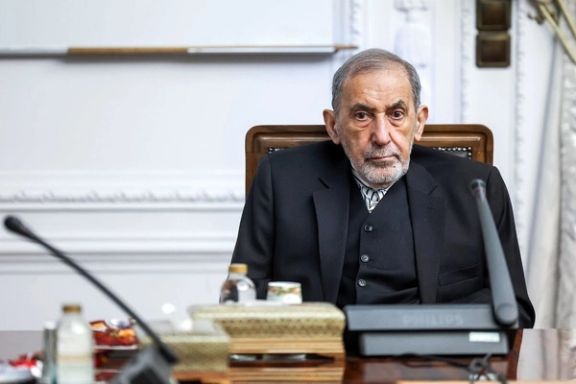
A senior adviser to Iran’s Supreme Leader warned on Saturday that Azerbaijan would damage the image of Shiites if it proceeds with plans to host a major rabbinical meeting.

A senior adviser to Iran’s Supreme Leader warned on Saturday that Azerbaijan would damage the image of Shiites if it proceeds with plans to host a major rabbinical meeting.
Ali Akbar Velayati said he hoped reports of the event were false, describing it as “anti-Islamic and against the dignity of Shiites.”
Such a move by Baku, he added, was unprecedented and suggested it might be tied to efforts to widen the Abraham Accords, under which several Muslim states normalized ties with Israel.
The remarks appeared aimed at the Conference of European Rabbis, scheduled for Nov. 4–6 in Baku, where Jewish leaders from across Europe are due to convene.
Velayati’s comments come as Azerbaijan deepens international links, including through a landmark peace deal reached in Washington last month. Armenian Prime Minister Nikol Pashinyan and Azerbaijani President Ilham Aliyev signed the accord at the White House with US President Donald Trump, granting exclusive US development rights to a transit corridor through the South Caucasus.
The route will connect Azerbaijan to its Nakhchivan exclave across southern Armenia. The White House said the project, named the Trump Route for International Peace and Prosperity, would expand energy and resource exports.
Tehran has objected to the corridor, warning it sidelines Iranian trade routes and diminishes its role in the region. Iranian officials have also accused Azerbaijan of permitting Israeli activity on its soil, intensifying mistrust.
The dispute over the rabbinical gathering now adds a cultural and religious dimension to already fraught relations between Iran and Azerbaijan.
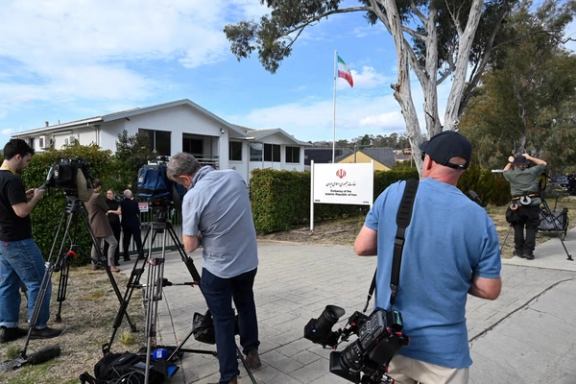
Australia joined G7 Rapid Response Mechanism members on Friday in denouncing what they described as Iran’s systematic targeting of opponents overseas.
“Iranian intelligence services have increasingly attempted to kill, kidnap, and harass political opponents abroad, following a disturbing and unacceptable pattern of transnational repression, and clearly undermining state sovereignty,” the joint statement said.
The signatories included the G7 states—Canada, France, Germany, Italy, Japan, the United Kingdom, the United States, and the European Union—alongside associate members Australia, the Netherlands, New Zealand, and Sweden. They cited Iranian efforts to intimidate journalists and Jewish communities, as well as operations to obtain and expose personal information in order to divide societies.
“The G7 RRM stands in solidarity with our international partners whose citizens and residents have also been targeted by Iran,” the statement added, pledging to continue countering foreign interference and safeguarding national sovereignty.
Canberra expelled ambassador Ahmad Sadeghi late last month following an ASIO-led investigation linking Iran’s Revolutionary Guards (IRGC) to two anti-Semitic attacks in Melbourne and Sydney.
Separately, Canberra announced the renewal of counter-terrorism sanctions against Hamas, Hezbollah, and Palestinian Islamic Jihad.
“The Albanese Government has zero tolerance for foreign interference and violence in Australia,” Foreign Minister Penny Wong said in an X post, reiterating calls for the release of hostages taken on October 7, 2023.
Hamas is now considered one of the Iran's armed militant proxy forces in the region, alongside the Lebanese Hezbollah, Yemeni Houthis and a collection of Shiite militias in Iraq and Syria.
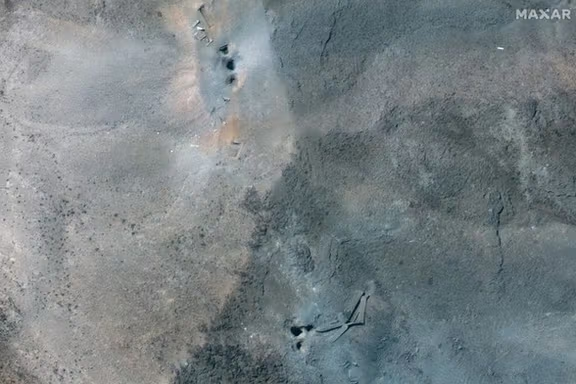
The United States Air Force has ordered a batch of cutting-edge new bunker buster bombs, Defense News reported this week, reaching for the successor technology to huge ordnance which pounded Iranian nuclear sites in June.
The new Massive Ordnance Penetrator (MOP) contract has been awarded to Applied Research Associates (ARA) for a two-year prototype design, according to the outlet.
Boeing, which originally developed the MOP, will team up with ARA for the design and full integration of new features, it added in an article on Monday.
The bombs the United States used against Iranian nuclear sites in Fordow, Natanz and Isfahan in a surprise attack on June 22 were GBU-57 MOPs.
The GBU-57 is a 30,000-pound GPS-guided bunker buster designed to destroy hardened and deeply buried nuclear facilities which is carried by the B-2 Spirit bomber.
Its first combat use came in the June strikes in the strikes dubbed Operation Midnight Hammer, when the Air Force dropped 12 bombs on the Fordow nuclear site alone.
The successor MOP, called the Next Generation Penetrator (NGP_ will focus on deeper penetration and reduced weight. Unlike the GBU-57, it will not exceed 22,000 pounds, and its guidance system will remain effective even if the enemy jams or disables GPS.
The weapon will also incorporate advanced fuzing to increase effectiveness against previously untested environments, another outlet The War Zone reported.
“Advanced fuzes with features like the ability to ‘count’ floors to determine depth and sense the ‘voids’ formed by underground mission spaces greatly increase the potential for maximum damage from a weapon like MOP,” TWZ wrote.
The United States began designing the GBU-57 in 2004 under the Air Force Research Laboratory, with production and first deliveries starting in 2011.
President Donald Trump has said the bombings "obliterated" Iran's nuclear program, adding that his decision to strike the sites forestalled a nuclear war.
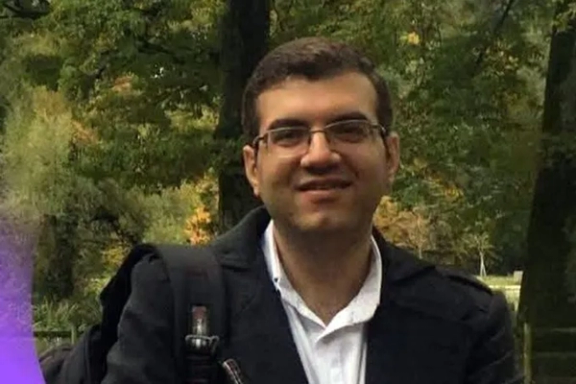
Federal prosecutors in Massachusetts said on Friday they had seized $584,741 in cryptocurrency from an Iranian national tied to the Revolutionary Guards’ drone manufacturing program.
The assets belonged to Mohammad Abedini Najafabadi, also known as Mohammad Abedini, 39, of Tehran.
“The government seized USDT (Tether) from an un-hosted cryptocurrency wallet alleged to be controlled by Abedini,” the Justice Department announced in a statement on Thursday.
USDT (Tether) is a stablecoin, meaning its value is tied to the US dollar. The cryptocurrency has been issued by Tether Limited since 2014.
Abedini is the founder and managing director of San’at Danesh Rahpooyan Aflak Co. (SDRA), a company that manufactures navigation system modules, including the Sepehr Navigation System (SNS), used in the Islamic Revolutionary Guard Corps (IRGC) military drone program, the Justice Department alleged.
The IRGC has been designated a Foreign Terrorist Organization (FTO) by the United States since 2019.
The SNS is used in guided rockets and missile-integrated navigation systems. In January 2024, three US service members were killed in an attack Washington blamed on the IRGC. A drone recovered from the attack was identified as a Shahed drone equipped with the SNS guidance system.
The strike targeted Tower 22, a US military base in northern Jordan, injuring more than 40 others.
“US law authorizes the forfeiture of all assets of individuals or entities engaged in planning or perpetrating a federal crime of terrorism against the United States, its citizens or residents, or their property, and all assets, foreign or domestic, affording any person a source of influence over any such entity,” the Justice Department said.
The United States charged Abedini in 2024 with conspiring to export sophisticated electronic components from the US to Iran and providing material support to a designated FTO.
He was arrested in Italy in December 2024 at the request of the United States, which sought his extradition. Abedini was released in January 2025 after Italy appeared to swap him for an Italian journalist detained in Tehran.
Italian authorities determined that violations of the International Emergency Economic Powers Act are not punishable under Italian law, in line with the Italy–US extradition treaty.
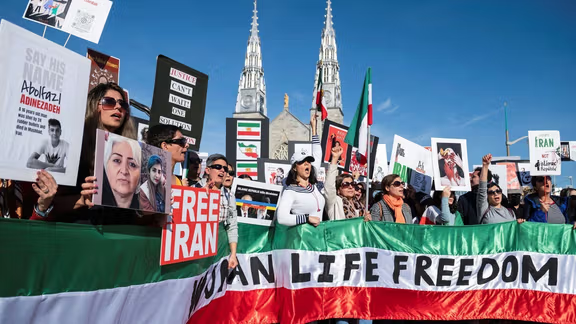
The United States, Canada, Australia and their European allies on Friday condemned Iran for escalating a campaign of transnational repression, accusing its intelligence services of seeking to kill, kidnap and harass political opponents overseas.
Members of the G7 Rapid Response Mechanism (Canada, France, Germany, Italy, Japan, the United Kingdom, the United States, and the European Union), joined by associate members Australia and New Zealand, issued a joint statement Friday condemning what they described as Iran’s growing campaign of transnational repression.
The statement cited recent declarations by Australia, Canada, France, Germany, the Netherlands, New Zealand, the UK, and the US, which detailed what they called increased attempts by Iranian intelligence services to kill, kidnap, and harass political opponents overseas.
The attempts, the G7 said, follow "a disturbing and unacceptable pattern of transnational repression, and clearly undermine state sovereignty."
Last month, UN human rights experts condemned what they called Iran’s intensifying campaign of repression against journalists working for Iran International and the intimidation of their families, particularly after the 12-day war with Israel.
"Reports suggest that journalists have been followed, had tracking tags attached to their cars, and their cars repeatedly broken into. Women journalists have faced threats of death and sexual violence on social media and instant messaging services, some receiving hundreds of messages a day."
The statement came after Iran International filed an urgent appeal with the experts urging them to take action against Iran over serious risks to the lives and safety of their journalists worldwide and relatives inside Iran.
In July, British lawmakers warned that Iran is among several foreign governments engaged in transnational repression on UK soil.
A report from parliament’s Joint Committee on Human Rights said Tehran’s tactics include “assassination plots, physical attacks, intimidation of family members, asset freezing, judicial proceedings, smear campaigns, online abuse, surveillance and digital attacks such as hacking, doxing and impersonation."
Beyond targeting dissidents, the G7 on Friday warned of other malign operations linked to Iran, including what it described as efforts to obtain and publish journalists’ personal information and actions designed to “divide societies and intimidate Jewish communities.”
“The G7 RRM stands in solidarity with our international partners whose citizens and residents have also been targeted by Iran,” the group said, vowing to continue countering foreign interference.
The RRM was launched in 2018 to address foreign threats to democracy.
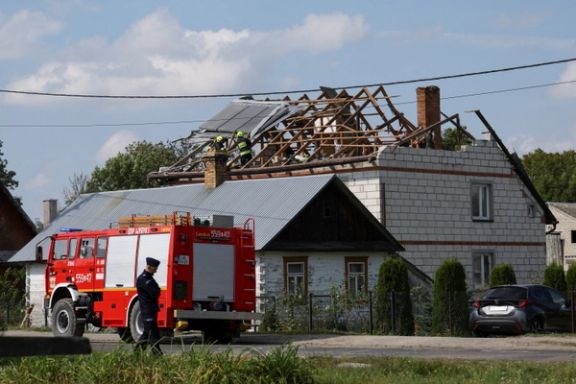
Two US senators sounded the alarm over the violation of NATO-member Poland's airspace on Tuesday by pilotless aircraft from Russia and Belarus, as Moscow steps up fusillades against Ukraine with Iranian-designed drones.
Speaking to Iran International, the lawmakers hit out at the escalation to the war in Ukraine after Poland said 19 Russian drones reportedly violated its airspace on Tuesday but were thwarted by Polish and NATO jets and air defenses.
Russia has stepped up blitzes on Ukraine in recent weeks involving hundreds of drones each and including Iranian-designed Shahed kamikaze drones. It was not immediately clear if they were among the drones intercepted over Poland.
“Iran has, over the last several years, been a critical and active partner in Russia’s aggression against Ukraine,” Democrat Senator Chris Coons said.
“By providing drone technology and even producing drones inside Russia for use against Ukraine, Tehran has enabled Putin’s war machine.”

Moscow denied any intent to violate Polish airspace, saying it did not seek to strike any targets in Poland and questioning whether the drones came from Russia at all.
The Chairman of the US Senate Foreign Relations Committee said facts are still emerging but said Russia had erred in piercing NATO air space.
“Russia is playing with fire here. Putin has made a lot of mistakes, and this could be the worst one he’s made yet," Republican Senator James Risch told Iran International. "We’ll see how this unfolds.”

'Open conflict' near
Poland, a former member of the Eastern Bloc under Moscow's tutelage for much of the twentieth century has become a staunch Western ally and base for NATO troops as the alliance's relationship with Iran, Russia and China has soured.
The drone incursion rattled its leadership, which warned of a dire escalation.
"This is the closest we have been to open conflict since World War II, but there is no reason to believe we're on the brink of war," Polish Prime Minister Donald Tusk told parliament.
Iran provides drone technology to Russia for its war against Ukraine, prompting a series of punitive sanctions from the United States and European Union.
Belarus, a close ally of Russia, confirmed the drones had entered Polish airspace, calling it an accident after the drones' navigation systems were jammed.
Western leaders have frequently warned against what they see as deepening security cooperation among their Eurasian adversaries Russia, Iran, China and North Korea.
After the incidents, Warsaw invoked Article 4 of NATO's charter which enables closer coordination with all NATO member states. A UN Security Council meeting to discuss the developments is scheduled for Friday.
Poland closed all border crossings with Belarus ahead of the joint Russia-Belarus Zapad 2025 military exercises, citing alleged security risks and Russian aggression.